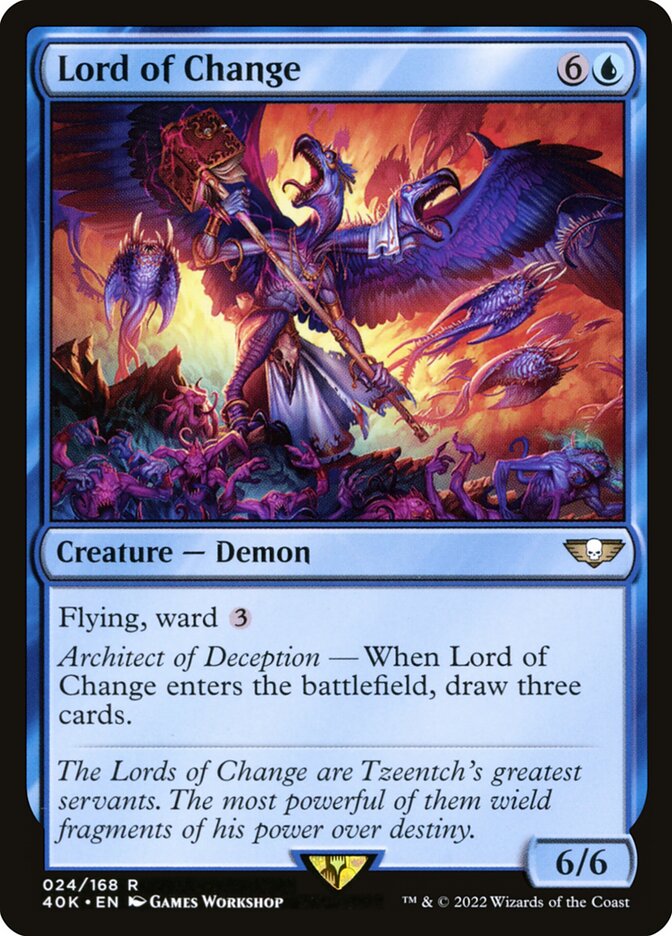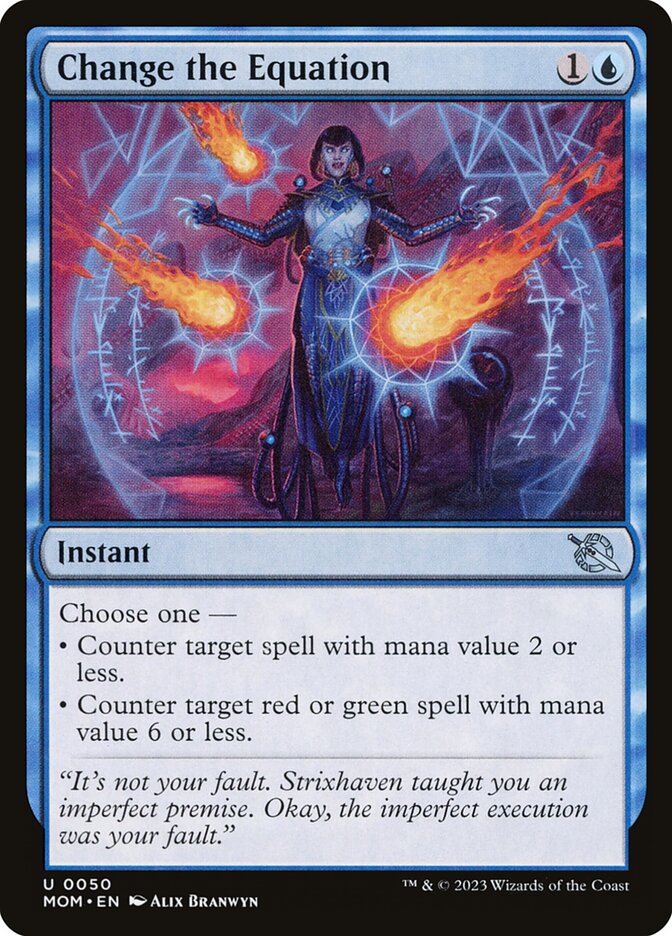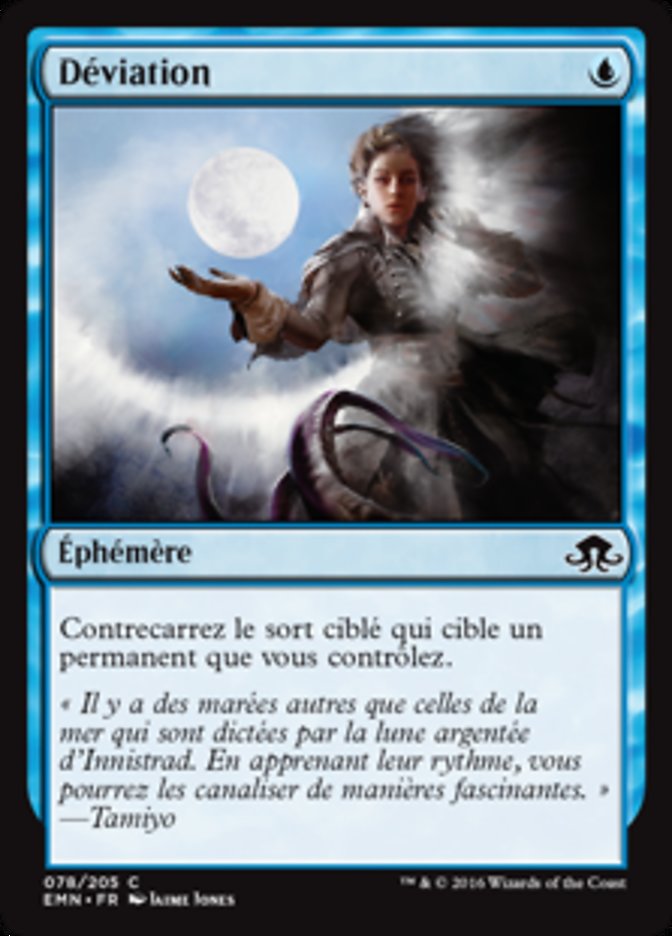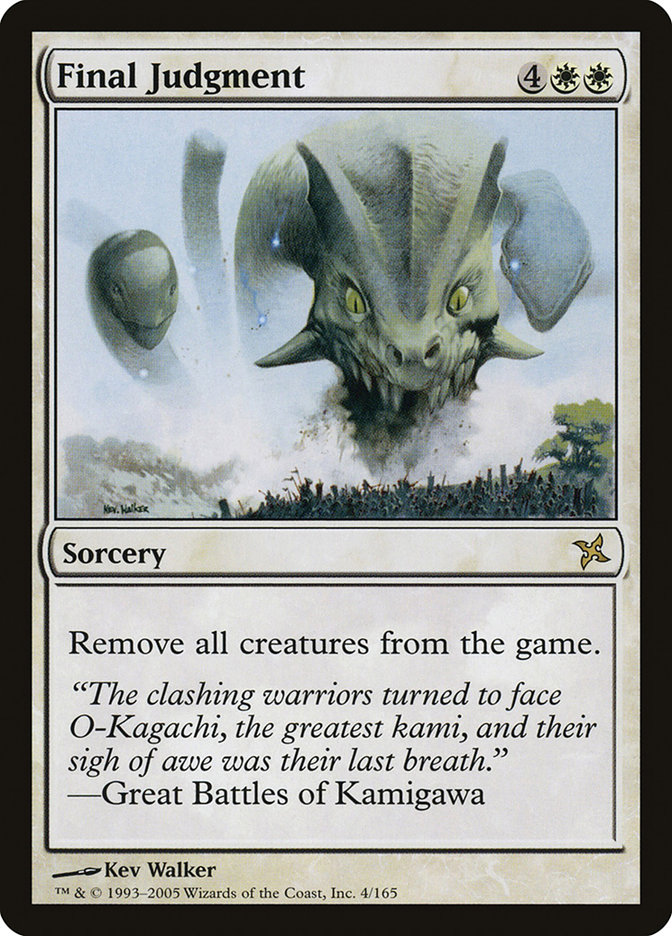Deviating is a frequent discussion topic among judges. A deviation is a judge ruling that intentionally violates policy. Almost always, deviating is incorrect.
A judge might be inclined to handle a problem in what they feel is the best way for that particular game between those particular players. That approach is absolutely not what policy wants judges to do. Policy is designed, deliberately, not to be situational.
The primary reason why deviations are frowned upon is that one of the core values of policy is consistency. Just as players expect the rules of the game to be applied the same way no matter where they play or with whom they play, they expect that policy is also applied the same way everywhere. They expect similar outcomes for similar situations: a player who gets a Game Loss for being late to a match will be unhappy if, the next weekend, their opponent is late for their match and doesn’t get a Game Loss. Unmet expectations produce frustration and disappointment, and create a negative experience for everyone.
Of course, players usually don’t understand the fine details of policy, nor should they need to – but judges should. After all, judges, not players, are the ones applying policy. Still, if a judge wants to deviate, they need to be able to justify to players – not to mention other judges – why they deviated. And “because it was a better fix” is not at all a sufficient answer. Even when policy’s fix doesn’t match what the judge wants to do, it’s still proper to follow policy.

Only the Head Judge should be deviating. On a multi-judge event, if you want to deviate, the proper approach is to suggest the deviation to the Head Judge, and let them make the final decision. The HJ won’t be happy if they find out that someone deviated without telling them! For purposes of this discussion, let’s consider the term “judge” to mean “either the HJ who is considering implementing a deviation, or a floor judge who is considering suggesting a deviation.”
The only time judges should be deviating is when there’s something very unusual about the situation that results in the approach dictated by policy not matching with the philosophy that underlies that policy. The IPG uses the term “significant and exceptional” to describe such situations.
– “Exceptional” means that such a situation occurs extremely rarely, a situation that any given judge encounters maybe once a year or less.
– “Significant” means that the situation really needs a deviation to bring equity to the match; if the benefit to deviating is only minor, then just apply policy as written.
If the situation is not, in fact, exceptional, then policy has most likely taken it into account, even if that’s not obvious in the moment.
Indeed, one of the considerations in deciding whether to deviate is that an individual judge might not see all the ramifications and consequences from this possible ruling.
Deciding to Deviate
Suppose a situation arises that actually meets the “significant and exceptional” criteria for a deviation. How does one determine whether to deviate?
When deviating, it is still crucial to rule in accordance with the philosophy that underlies policy. If the deviation violates philosophy, then it’s a bad ruling no matter how happy the judge or the players are with the outcome. When applying policy as written would produce a result that contravenes the philosophy that underlies policy, when the goals of policy can’t be accomplished by its standard procedures, a deviation might succeed in achieving those goals.
Thus, in order to deviate, a judge needs to thoroughly understand philosophy, i.e. why policy is designed the way it is and how its structure serves to meet its goals. If the deviation is sound, then the judge can explain it both to players and other judges and can elucidate why, in this particular case, written policy doesn’t achieve its philosophical objectives, and how the proposed deviation works better for that purpose.
A good starting point for understanding policy philosophy is the “Philosophy” section under each infraction in the IPG.
Examples of Good Deviations
1) A player borrows a deck from a friend, and the deck contains some altered cards. The altered cards are combo pieces with specific instructions, in Japanese, about how to perform the combo. The player neither speaks nor reads Japanese.
The IPG section on Outside Assistance explains that “Detailed instructions or complex strategic advice may not be written on cards”; however, the philosophy behind Outside Assistance is that “Any strategy advice, play advice, or construction advice from an external source is considered outside assistance.” Since the player has no way to benefit from the instructions on the altered cards, it makes sense to deviate and not issue a penalty.

2) The Head Judge tells a player that their RCQ does not require decklists. At the beginning of Round 1, the player doesn’t have a decklist ready, and it takes them 15 minutes to quickly write it out. Normally, this would be a Tardiness infraction, but because the player acted upon incorrect information from a tournament official, it’s better to deviate and not issue a penalty.
Philosophically, we want players to trust judges and have faith in their rulings. If a player abides by a judge’s ruling and gets a penalty because of it, that’s going to severely damage that trust.
3) A player who is blind uses Braille-stamped sleeves so that they can read their cards. Normally, this would constitute Marked Cards since it’s possible for the player to determine the identity of the top card of their deck. However, there’s no way for this player to participate without stamping these sleeves, so it’s better to deviate and waive the penalty.
Philosophically, the Marked Cards infraction exists not because the markings themselves are problematic, it’s because of the information that such markings can convey. On the other end of the spectrum, a deck of 60 Forests could have each card marked in a distinctive way, and there would be no infraction because there’s no information to be gained.
Magic aims to be inclusive, so it’s reasonable to make accommodations for players when policy as written gets in the way of their participation. The important thing is for a player not to get undue information from those markings. It’s crucial to remember that even in the situation above, the player is still responsible for not gaining in-game advantage from the marked sleeves, and is still committing an infraction if they gain such advantage (e.g. by manipulating the order of the deck when shuffling). The potential advantage can also be mitigated by explaining the markings to the player’s opponent to make sure that the opponent takes the opportunity to shuffle the deck thoroughly each time the player presents it.
Examples of Bad Deviations
1) Partial fixes that aren’t on the specific list in the IPG Section 2.5, such as tapping the correct lands for mana instead of the incorrect lands. This type of error happens at least once every big tournament, so it’s far from exceptional.
For applying unlisted partial fixes, as with many bad deviations, the philosophical issue is that it strays from the objective of consistency. Players should get the same rulings in the same situations no matter where they’re playing or who’s running their event; inconsistent rulings make the play experience unpredictable and frustrating, and can raise questions of bias, favoritism, subjectivity, and even incompetence.
2) Waiving a Tardiness penalty because the judge believes it’s a sufficient excuse if a player didn’t hear the announcement or was in the middle of a purchase from a vendor. Again, these situations are not exceptional, so there’s no justification for deviating.
3) Not issuing an infraction while watching a match, on the reasoning that the judge is right there and can correct the error before the game continues further.
Consequences of Deviations

When a judge applies policy by the book and a player is dissatisfied, they’ll blame policy. When a judge deviates and a player is dissatisfied, they’ll blame the judge. In the latter case, there is nothing to lean on, nothing to point to; the decision is entirely the judge’s, and the judge must take all the responsibility for the outcome.
The consequences of a deviation go far beyond that game and those players. Any ruling is a precedent, in the sense that it will influence future rulings and affect expectations of future rulings, whether the judge intends it to or not. Players will remember how a judge deviated: not just those players in that game, but other players at the event and other players that hear about it secondhand (in person or online). And it won’t affect only the judge who made that ruling; it will affect judges at other events as well.
There are several ramifications of a deviation that go beyond just that game or just that tournament:
- Players will expect a similar ruling in the future: “That’s not how it was ruled last month at [some other event].” Players aren’t trained in policy, and they often won’t notice nor understand the distinctions that you see that you believe to merit a deviation. That means they might expect the deviation to apply more broadly than the judge intends.
- The deviation can negatively affect a judge’s reputation when players know that they didn’t apply policy as written. Players might be less willing to trust that judge because they know that they might not get the ruling they expect; they might believe that the judge’s rulings are incorrect because they’re not following policy. Indeed, players can even broaden that expectation to judges in general, leading to a belief that “judges rule however they want and don’t care about following policy.” It’s good if players expect that judges will deliver consistent rulings; it’s bad if they expect that judges will deliver inconsistent rulings.
- A judge can damage their reputation not just with players but with other judges. No one, hopefully, wants to be known as a judge who tends to go rogue. Other judges won’t trust their rulings or opinions, won’t ask for guidance from them, and will be less comfortable working with them.
When a judge deviates they might think that they’re providing customer service to the players. In reality, they’re providing what is, at best, some short-term happiness to a single player, but there is a cost – because the next time that player receives the in-policy ruling, they will be frustrated and disappointed. They’re misshaping players’ expectations of both what policy says and how judges handle problems. The more that players encounter inconsistent rulings from judges, the more confusing and frustrating their experiences will be. And in the long run, that’s exactly the opposite of customer service.

